Faced with this situation, monk Thach Ngoc Han, abbot of Chang Hai Pagoda, Loc Quang Commune, Loc Ninh District, has devoted much effort to turning this place into a common home for those who love Khmer traditional musical instruments. Every evening, the elders in the hamlet will gather together to practice traditional music such as romvong, saravan, lam lieu... to perform during the traditional Chol Chnam Thmay New Year and other Khmer festivals. This meaningful activity has been maintained for the past 3 years.
Currently, the traditional musical instrument group has 6 members, often performing at pagodas, during the traditional Khmer New Year.
Monk Thach Ngoc Han shared: According to the tradition of the Khmer people, the pagoda is a place to preserve cultural treasures, from language, writing to music . In the past, I have encouraged the elders in the hamlet to come to the pagoda to practice musical instruments. Gradually, the elders have become more proficient in playing music. In the near future, if I have the opportunity, I will organize more musical groups such as the five-tone, ro bam, chhay dam to perform, contributing to preserving and promoting the unique cultural values of the nation in accordance with the direction of the Party and the State.
Every evening, the sound of music echoes in the quiet space of the pagoda, creating a sacred atmosphere imbued with traditional cultural values. Mr. Lam Sing, head of the traditional musical instrument group in Chang Hai hamlet, is one of the first people to "revive" traditional musical activities in the locality. From simple lessons passed down by his ancestors, today he has become a teacher and instructor. "I learned to play music from my grandparents. Later, thanks to the abbot's encouragement and support in purchasing musical instruments, we had the opportunity to gather at the pagoda to practice. Every night, little by little, we study together and remember old songs. We try to maintain it so that our descendants will know and continue to develop these traditional musical instruments," Mr. Lam Sing confided.
Those who used to play traditional musical instruments since childhood are now old, their memories are sometimes blurred, their fingers are no longer agile. But that does not stop them from picking up their instruments, playing each drum beat, each zither beat with all their heart. Mr. Tran Ben, a member of the traditional musical instrument group, said: Some people have forgotten everything, now they have to learn from the beginning. Each person remembers a little, adding up to a lot. The group not only performs during Tet but also teaches their children and grandchildren. That is the way to keep traditional musical instruments alive from generation to generation.
The band not only performs during Tet, but also teaches their children and grandchildren, which is the way to keep traditional musical instruments alive forever.
Not only those who have been involved in traditional music since childhood contribute to preserving the identity, but also those who have never known about traditional musical instruments are willing to learn and participate when they see the meaning of preserving Khmer culture. One of those people is Mr. Thach Phol from Tra Vinh who came to Binh Phuoc to start a career in 2004. Mr. Phol shared: “At first, I did not know how to play music, but when I saw the elders in the pagoda performing well and the group was short of people, I decided to join. Although there is a lack of musical instruments, the greatest joy is to contribute to inspiring the younger generations. Every time I perform and the children praise me for my performance and want to learn from me, I feel very happy and motivated."
The examples at Chang Hai Pagoda not only show the efforts to preserve Khmer traditional musical instruments but also are a living testament to a simple truth: When cultural values are planted with sincerity, they will take root deep in the heart of the community. Despite difficulties and shortages, the cooperation of each person has created a close-knit cultural community, where each melody played is a time for identity to be preserved.
There, the "teachers without blackboards or lesson plans" are "passing on the fire" to the next generation every day, not through lofty theories but from their passion, memories and love for their homeland. Each music night at that small temple is a silent but powerful message: culture does not exist naturally, it lives thanks to people who know how to preserve and nurture it with all their hearts.
Source: https://baobinhphuoc.com.vn/news/19/174476/giu-gin-nhac-cu-dan-toc



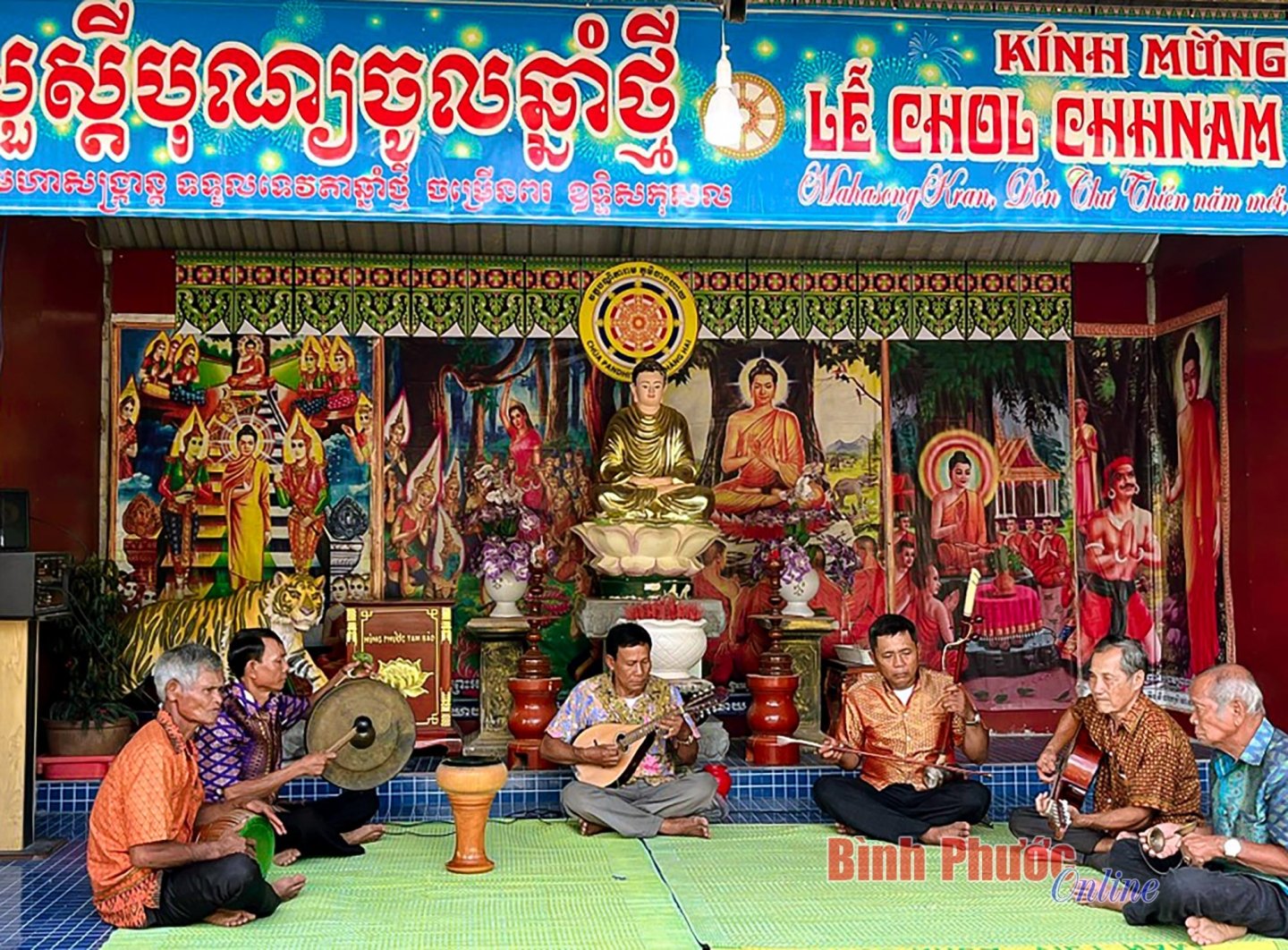
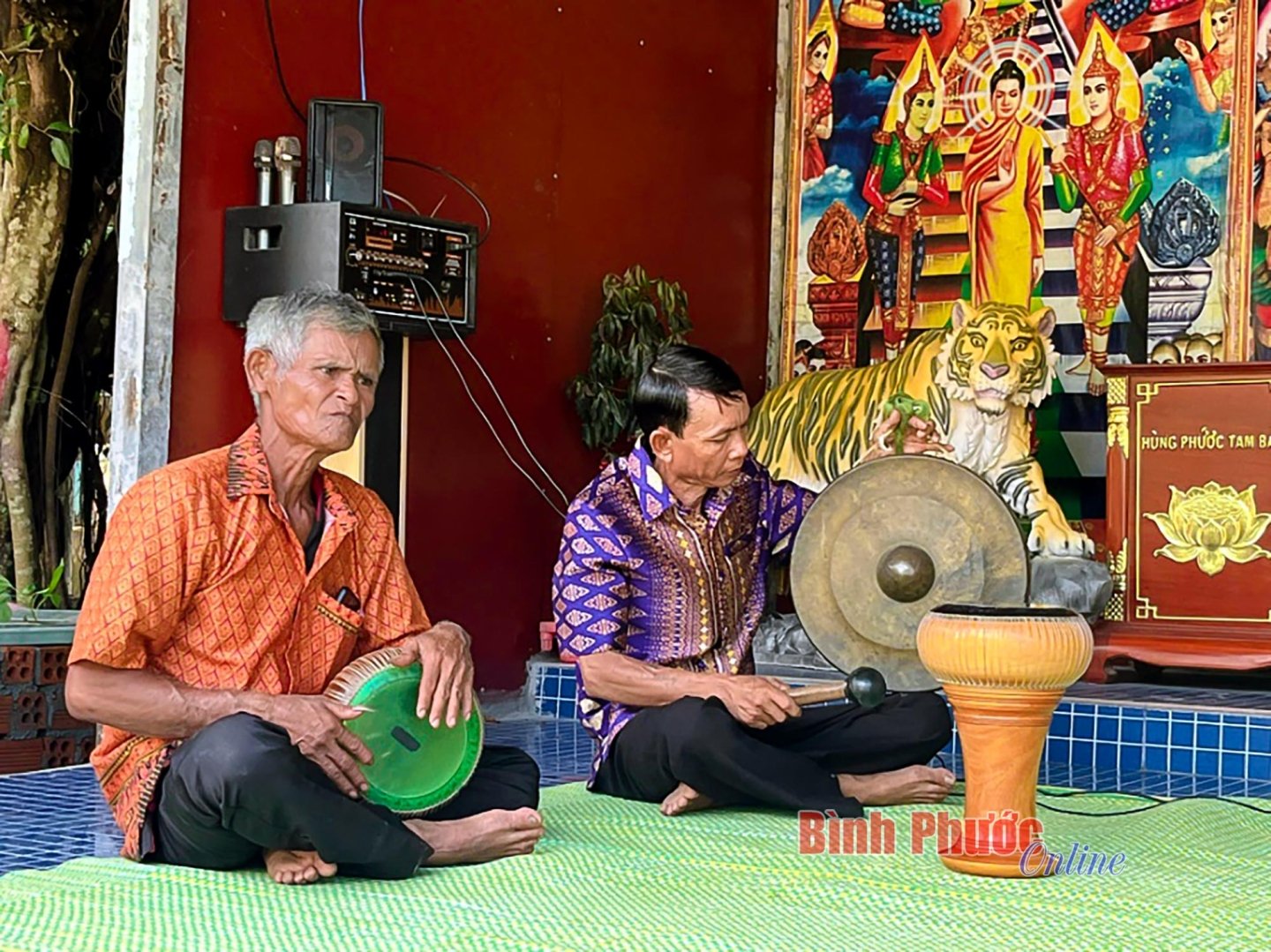
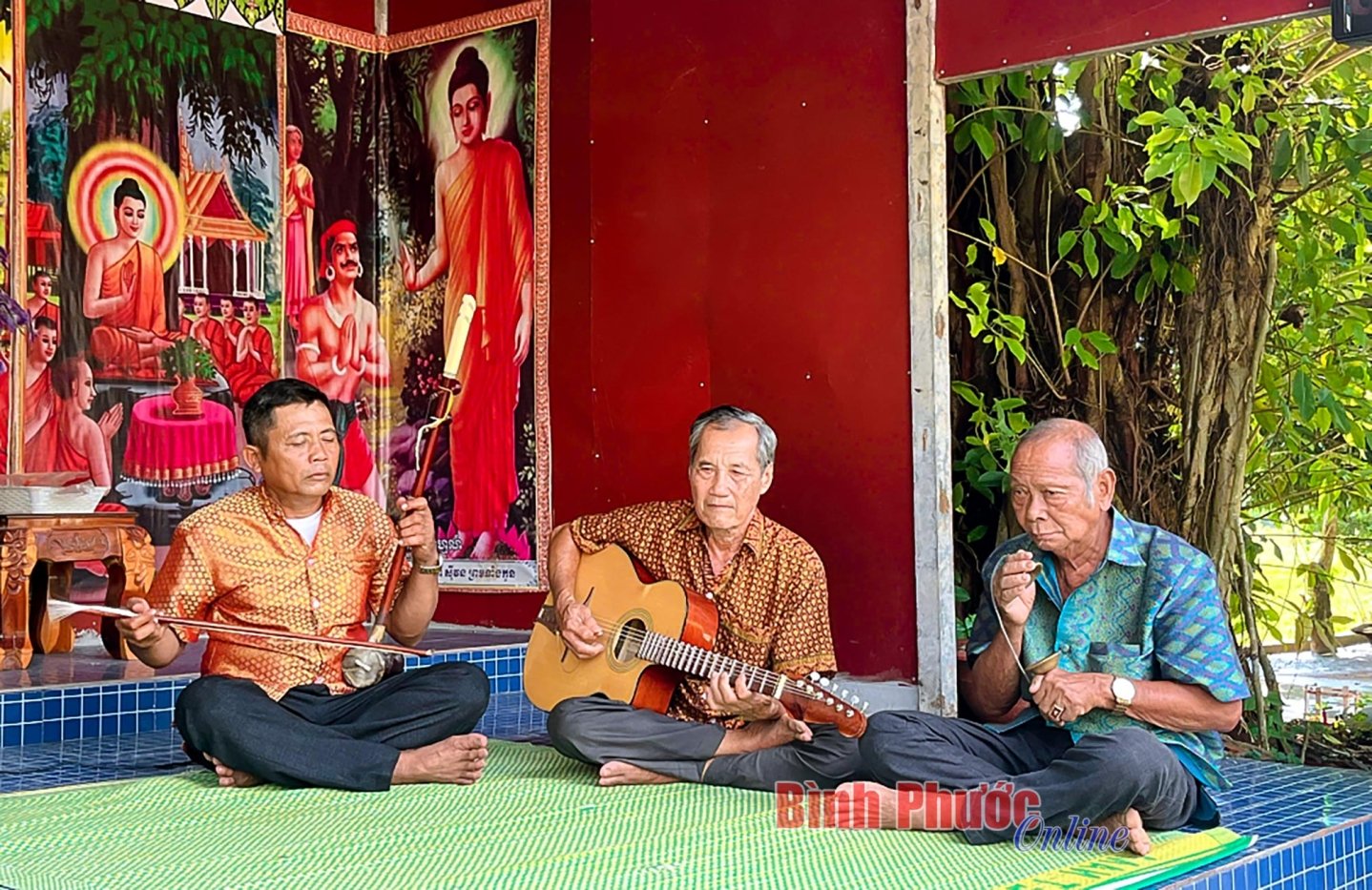
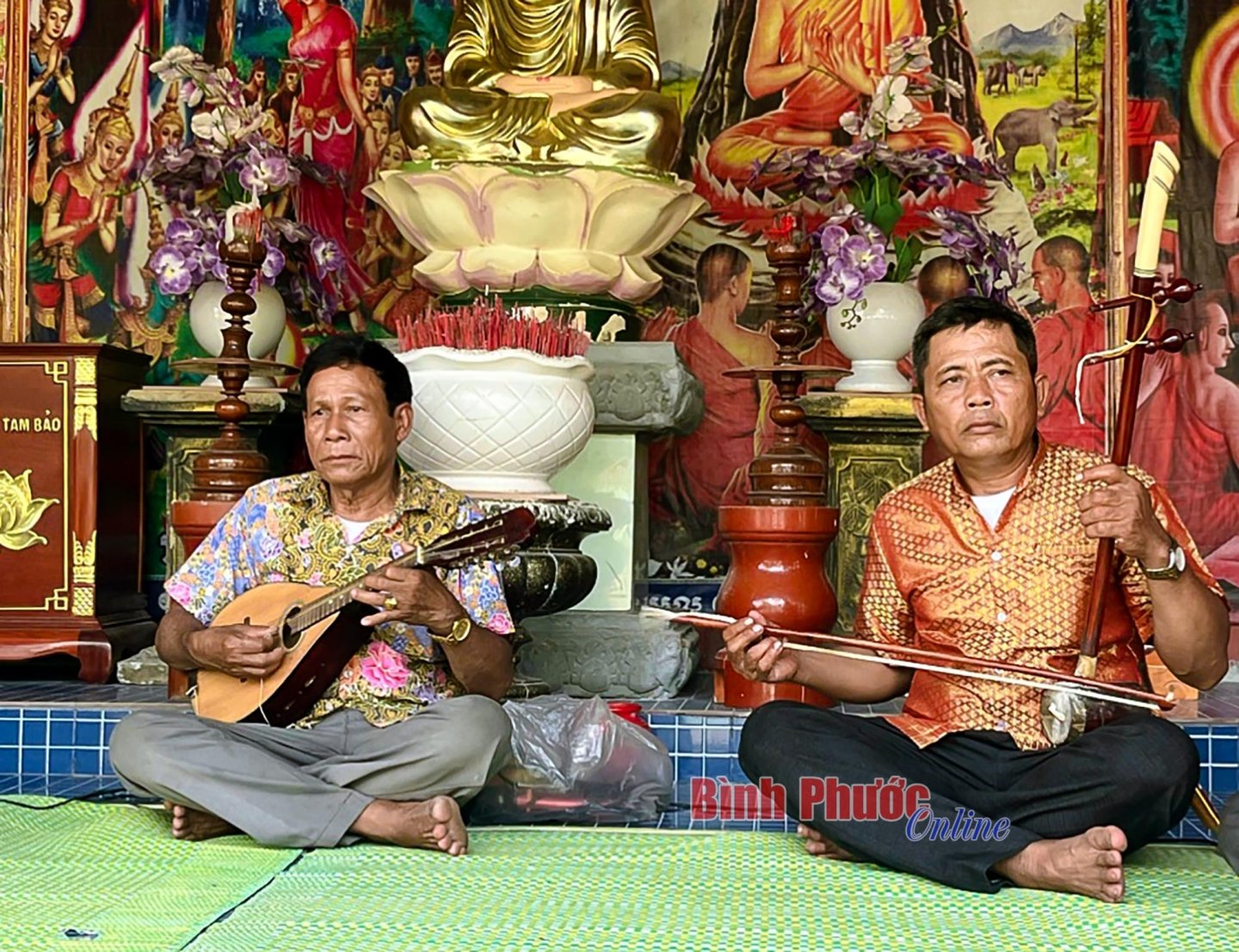

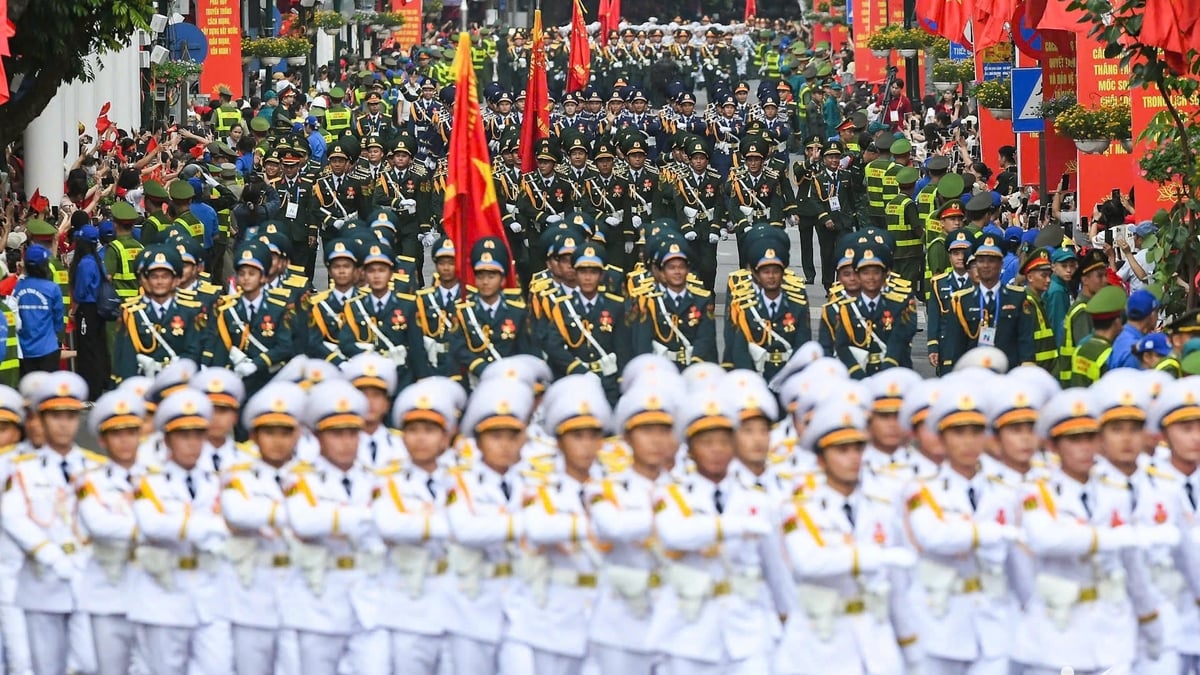
![[Photo] People eagerly lined up to receive special publications of Nhan Dan Newspaper](https://vphoto.vietnam.vn/thumb/1200x675/vietnam/resource/IMAGE/2025/8/30/53437c4c70834dacab351b96e943ec5c)
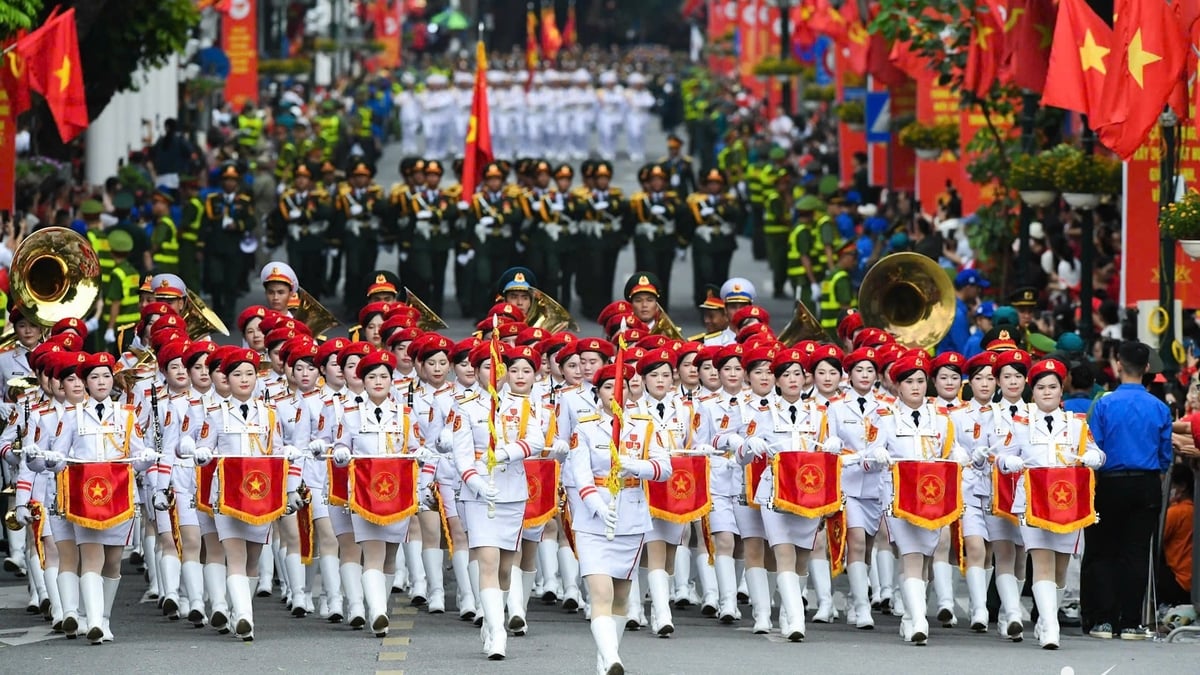

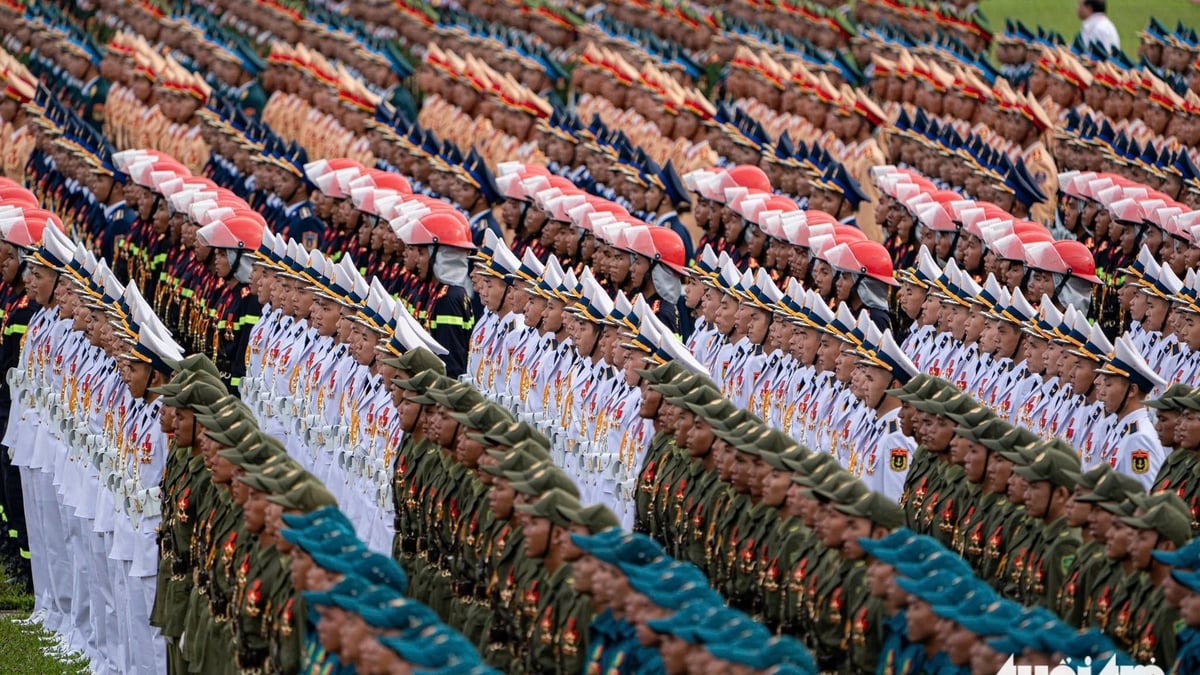


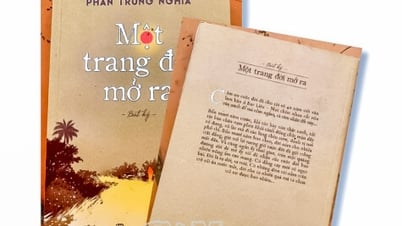

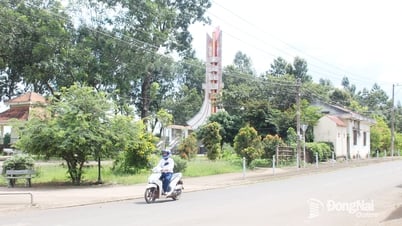

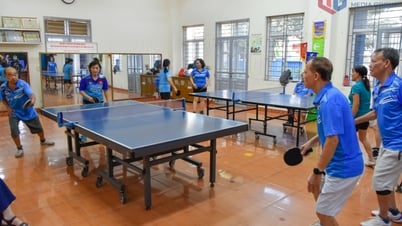








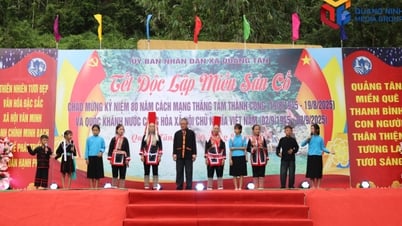



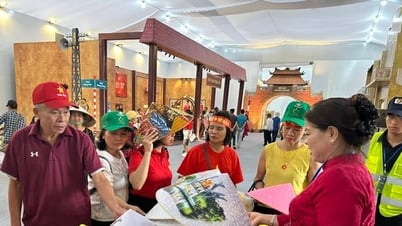




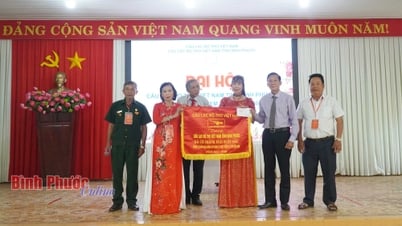
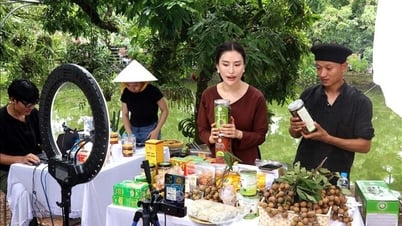





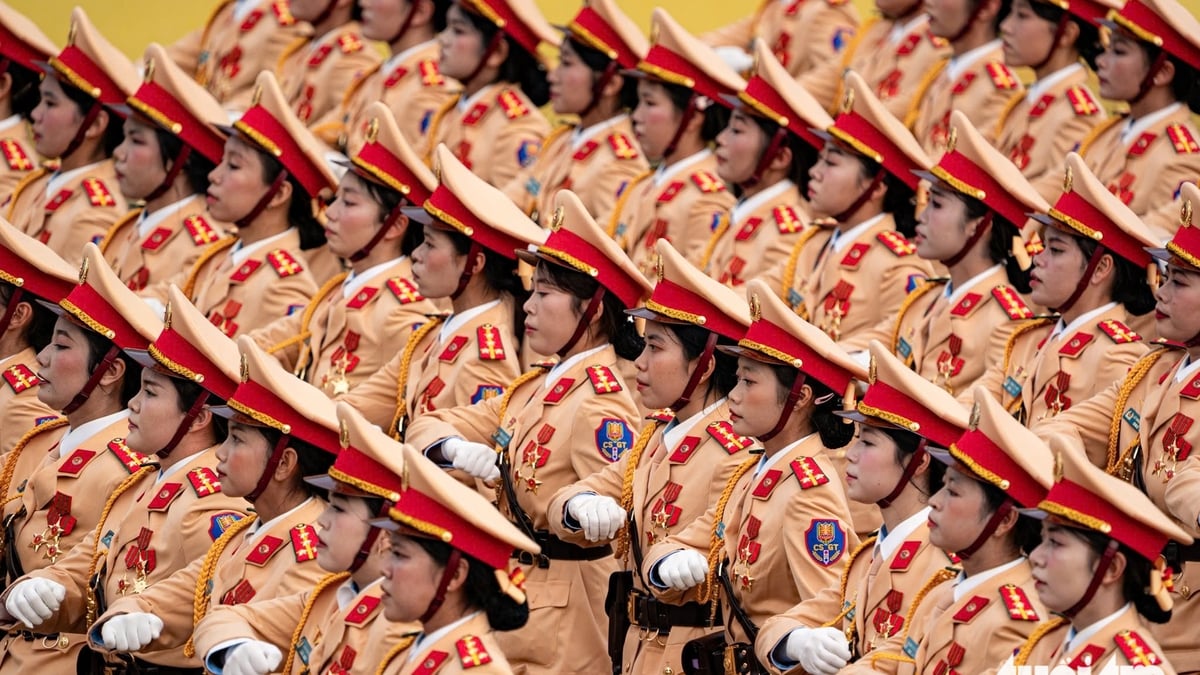











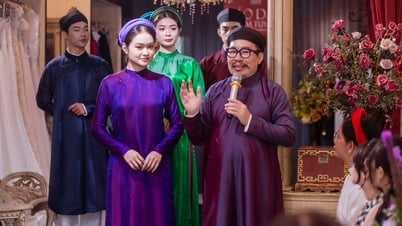




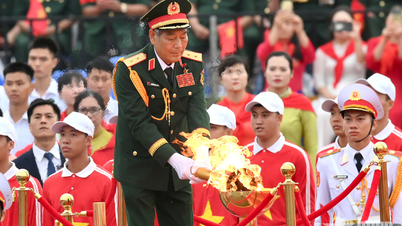



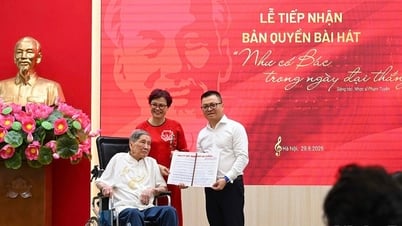














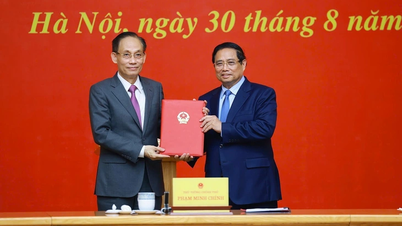

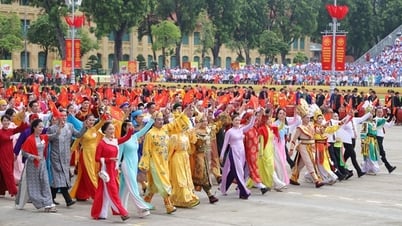
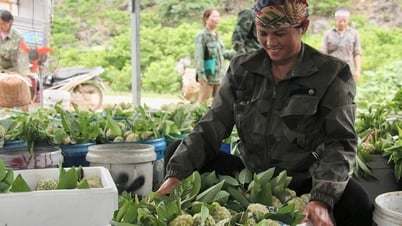




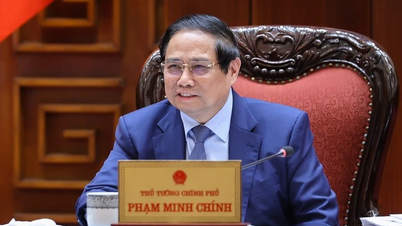




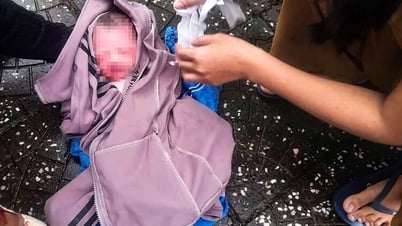

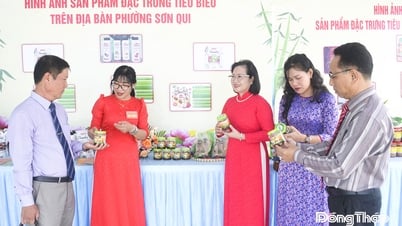









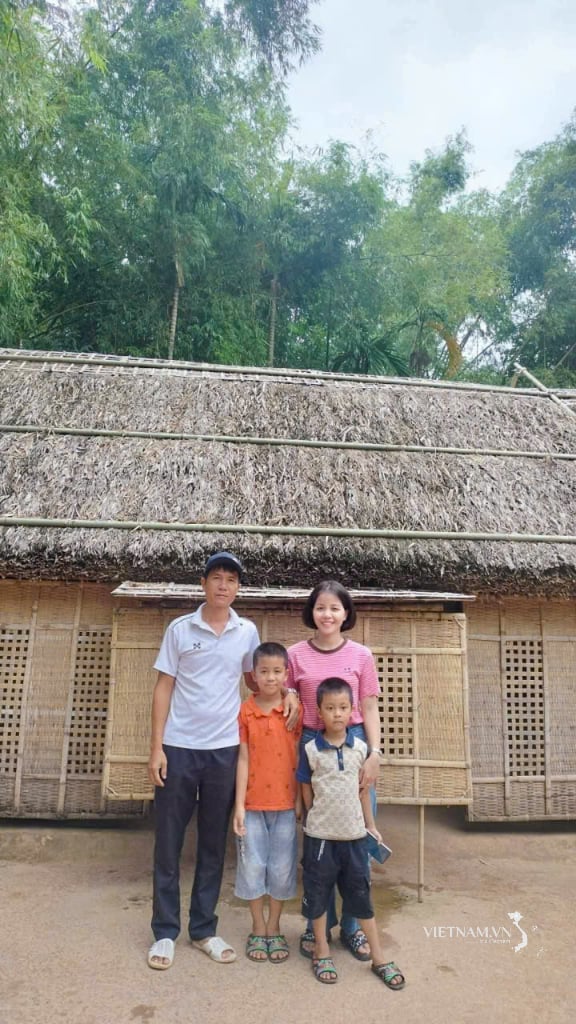
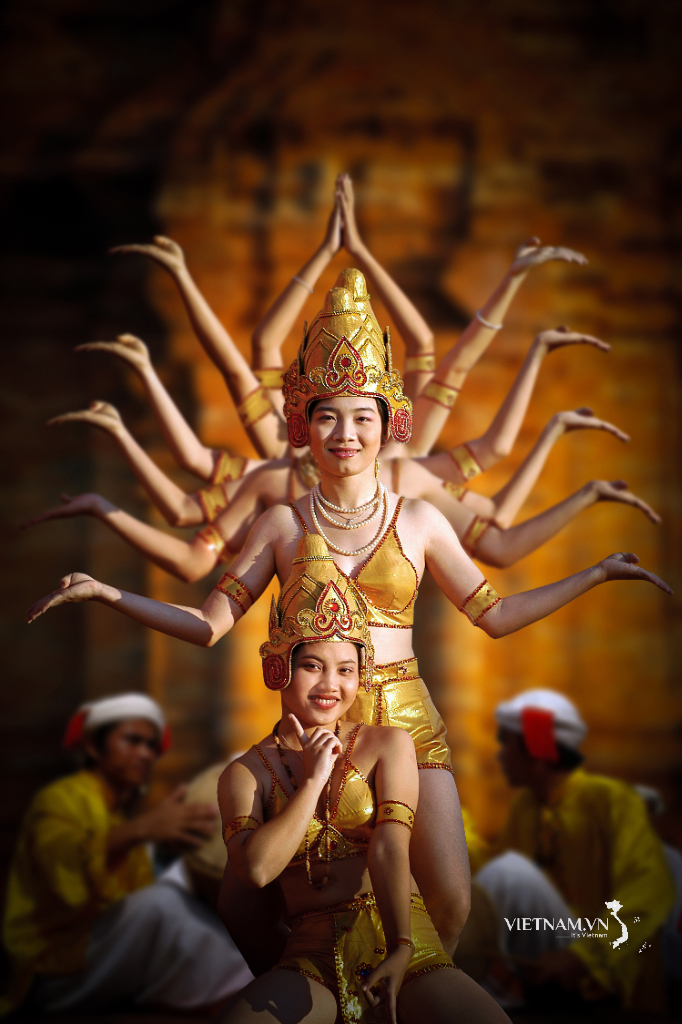
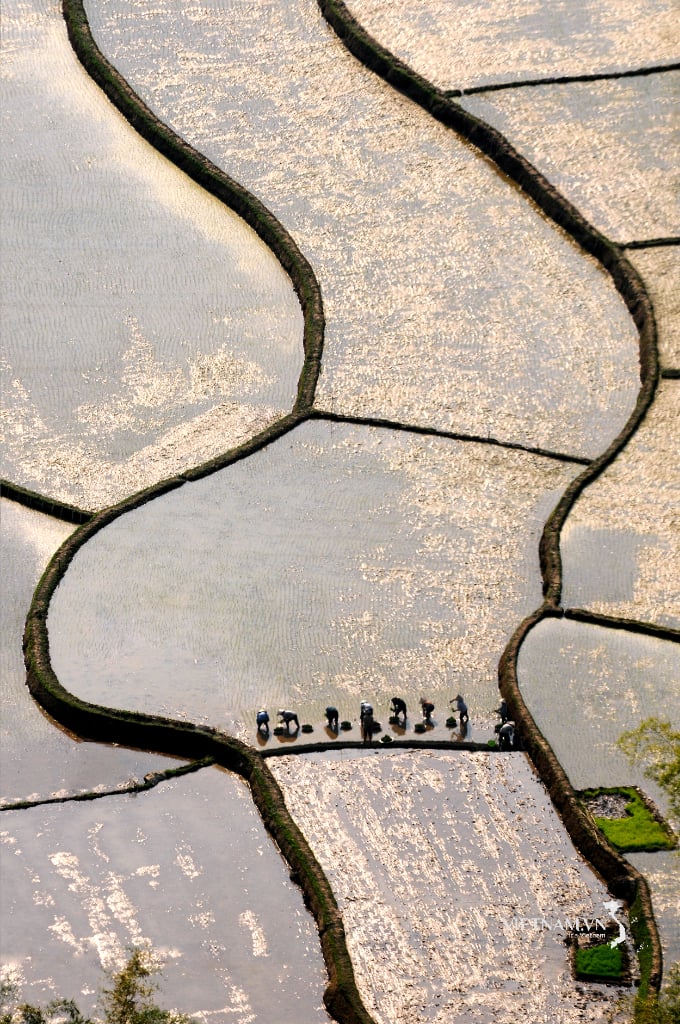

Comment (0)